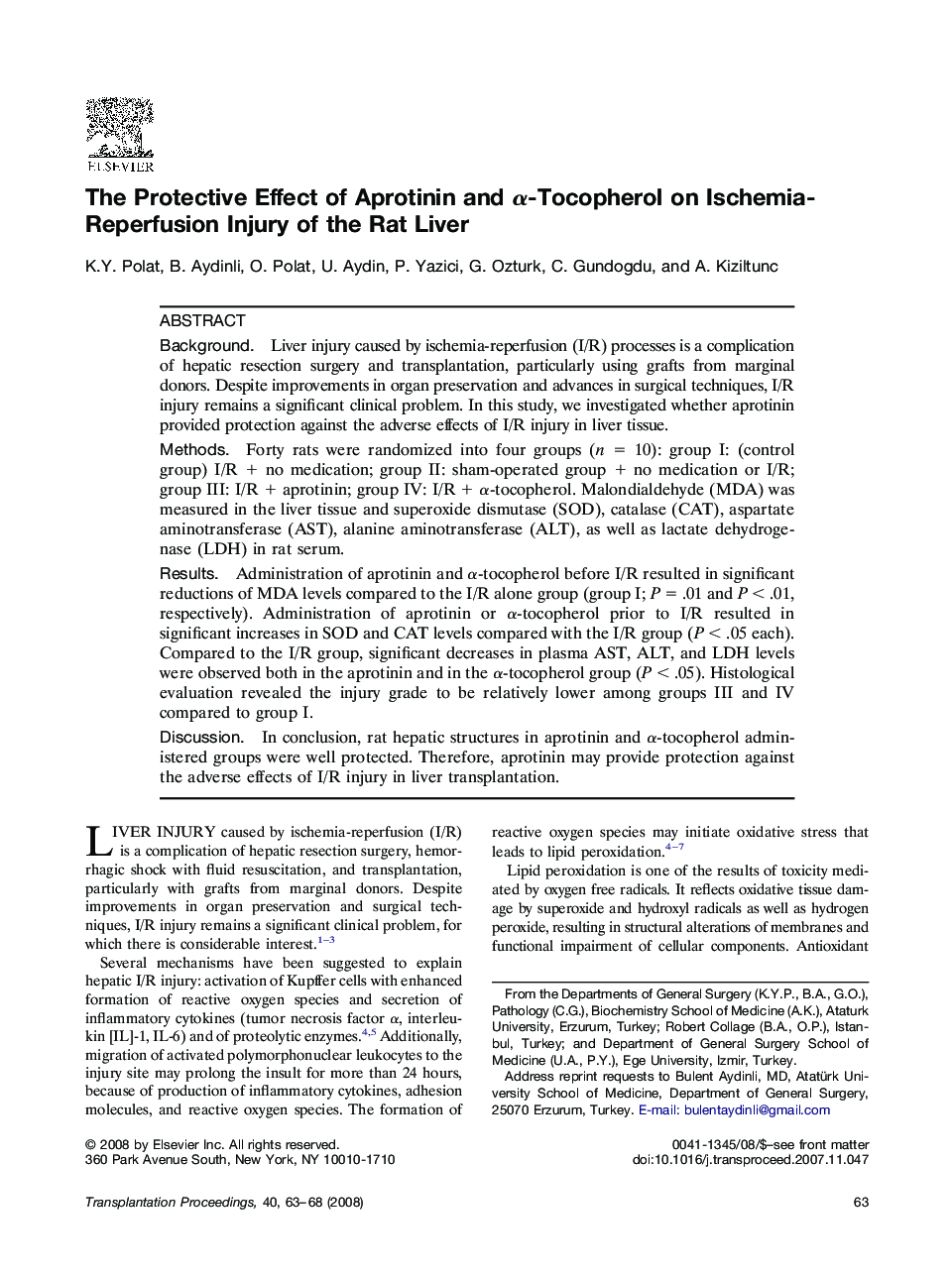| Article ID | Journal | Published Year | Pages | File Type |
|---|---|---|---|---|
| 4260427 | Transplantation Proceedings | 2008 | 6 Pages |
BackgroundLiver injury caused by ischemia-reperfusion (I/R) processes is a complication of hepatic resection surgery and transplantation, particularly using grafts from marginal donors. Despite improvements in organ preservation and advances in surgical techniques, I/R injury remains a significant clinical problem. In this study, we investigated whether aprotinin provided protection against the adverse effects of I/R injury in liver tissue.MethodsForty rats were randomized into four groups (n = 10): group I: (control group) I/R + no medication; group II: sham-operated group + no medication or I/R; group III: I/R + aprotinin; group IV: I/R + α-tocopherol. Malondialdehyde (MDA) was measured in the liver tissue and superoxide dismutase (SOD), catalase (CAT), aspartate aminotransferase (AST), alanine aminotransferase (ALT), as well as lactate dehydrogenase (LDH) in rat serum.ResultsAdministration of aprotinin and α-tocopherol before I/R resulted in significant reductions of MDA levels compared to the I/R alone group (group I; P = .01 and P < .01, respectively). Administration of aprotinin or α-tocopherol prior to I/R resulted in significant increases in SOD and CAT levels compared with the I/R group (P < .05 each). Compared to the I/R group, significant decreases in plasma AST, ALT, and LDH levels were observed both in the aprotinin and in the α-tocopherol group (P < .05). Histological evaluation revealed the injury grade to be relatively lower among groups III and IV compared to group I.DiscussionIn conclusion, rat hepatic structures in aprotinin and α-tocopherol administered groups were well protected. Therefore, aprotinin may provide protection against the adverse effects of I/R injury in liver transplantation.
